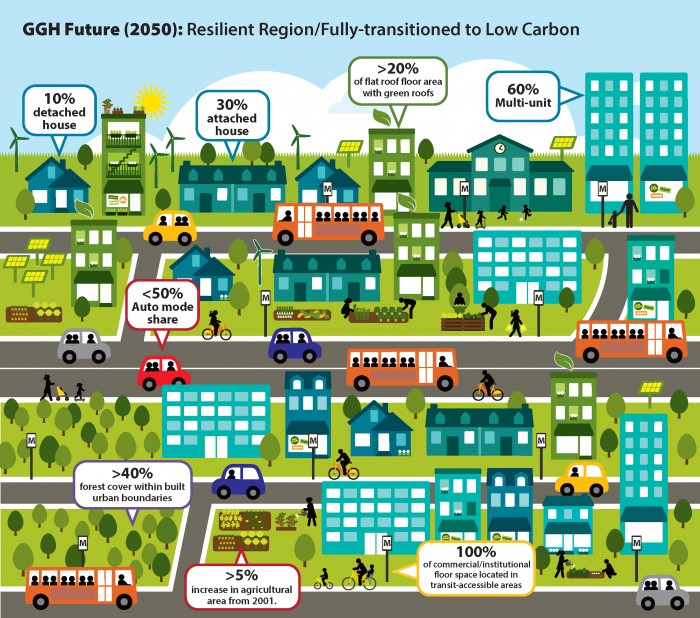January 29, 2016
Integrating Climate Change into Land Use Planning in the Greater Golden Horseshoe Region
The OCC is excited to announce the release of the Executive Summary of the “Research and Information Gathering on Climate Change Mitigation” report. This project was undertaken to provide research and recommendations to aid the Ministry of the Environment and Climate Change (MOECC), as well as other ministries and stakeholders selected by MOECC, in planning for climate change and responding to the coordinated review of the Growth Plan for the Greater Golden Horseshoe (Growth Plan), the Greenbelt Plan, the Oak Ridges Moraine Conservation Plan (ORMCP) and the Niagara Escarpment Plan (NEP) (collectively, the Provincial Plans). The MOECC selected an OCC-led partnership with the York University Faculty of Environmental Studies, Zizzo Allan DeMarco LLP, and the Ontario Centre for Climate Impacts and Adaptation Resources (OCCIAR), to gather and synthesize information on policy directions and best practices relating to land use planning and climate change.
In an innovative approach to policy analysis, the project team consulted with experts, synthesized academic literature and reviewed global best practices. These multiple streams of input were distilled into a high-level set of policy directions under which specific policy recommendations, a performance measurement framework and a narrative description of climate resilient and low carbon communities were developed to help provide a positive future vision for Ontarians.
The following seven high-level policy directions linked land-use with climate planning in the report:
- Mainstream climate change considerations in Ontario’s land-use planning framework;
- Require the development of compact, location-efficient communities;
- Encourage urban design features that support higher-order transit and active transportation;
- Require, integrate and support community energy planning;
- Protect and enhance green infrastructure;
- Require improved stormwater management;
- Provide tools that encourage effective and collaborative adaptation planning by local and regional governments.
Click here to access more information about the project and related resources.




Comments are closed here.